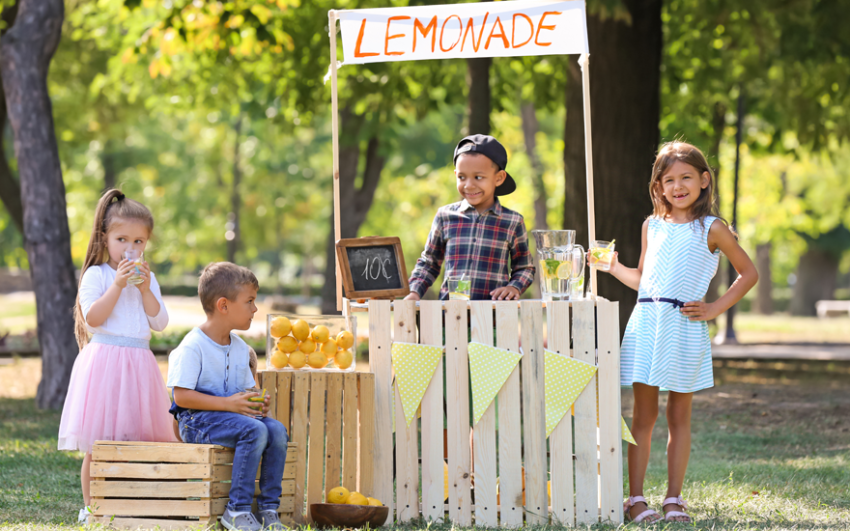How often do your school-aged children bring home order sheets for candy bars, wrapping paper, pizza, popcorn, etc.? Sometimes they even run their own lemonade stands to help raise money for nonprofits and activities. Between school fundraisers and team sports fundraisers, most likely all year ‘round. Yes, this is a great way to support the community, but have you thought about what an excellent opportunity it is to teach your kids about responsibility and money?
Here are some tips to make the most out of the fundraising experience.
- Before they take on the responsibilities of fundraising, be sure they understand what it entails. You don’t want them to start the project and get tired of if half-way through. Remind them that raising money helps their school, band, club, or soccer team grow and get better. It’s about giving back and making a difference.
- Be sure your children are doing the “selling.” Whether it’s face-to-face or through a note you share with your co-workers when you offer this “purchasing opportunity,” the kids should be in charge. They should explain what the fundraiser is for, what the products are, how much they cost, and when and how they will be delivered.
- If you are taking the kids door-to-door, remind them to introduce themselves first and talk about the fundraiser clearly so people can understand them. Some children are shy, but encourage them to speak up and show pride in what they’re doing.
- Children should know about the items they are selling and the cost. For example, one box of cookies is $4.00 so four boxes cost $16.00.
- Work with children to keep a list of everyone who has been approached, what they bought, if they paid at the time of order or if they are paying upon delivery, etc. This will teach organizational skills.
- When the children collect the money, they should count it to ensure it is the correct amount (you can double-check the numbers as a back-up). It’s important they know how to make change, too!
- Have the “salespeople” review the order forms so all the information is complete.
- Determine how the money will be handled. Does it go into a bank account until the end of the fundraiser or will it be turned in to the project leader on a daily basis? Discuss the options. If checks are involved, talk to your children about them. With the onset of online banking, some children might not understand the process of check-writing.
- Always, always, always insist on good manners. Please and thank-you are a must when asking for orders and when delivering them.
With your guidance, fundraising will give your children a strong foundation of philanthropic and financial responsibility that will last a lifetime.
The above does not constitute legal, tax, or financial advice. Please consult a licensed professional for recommendations applicable to your specific situation.
TRN00059; Rev. 8-2025


